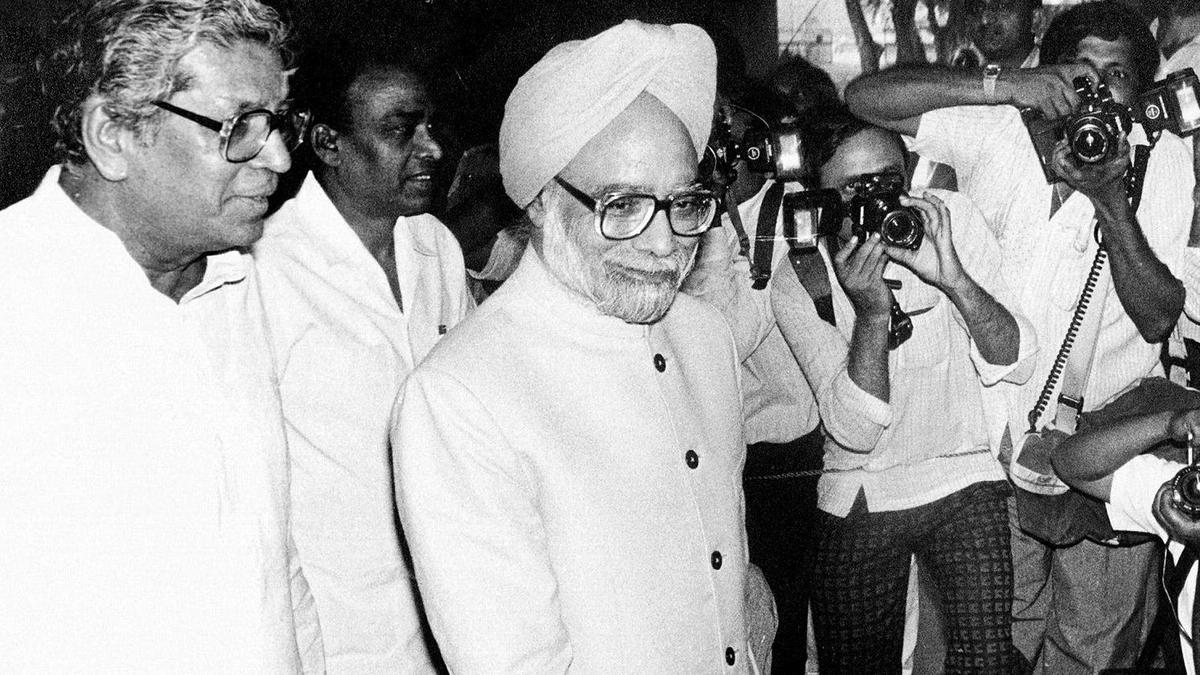
Manmohan Singh: A forthright Finance Minister
The Hindu
Manmohan Singh: Forthright Finance Minister, with a light and literary touch, unleashed the animal spirits of the Indian economy
Less than a month after he took over as India’s 22nd Finance Minister, Manmohan Singh presented a Union Budget in July 1991, that changed the country’s economic trajectory with some of the hard decisions that were desperately needed. The Budget was prepared amid what he termed an acute and deep crisis that was unprecedented in independent India’s history.
It is rare for a Finance Minister of any regime to make even a nuanced critique of their own party’s predecessors in office, especially if the party swore by those leaders’ indelible imprint. Manmohan Singh, inarguably India’s most educated leader, was not one to be weighed down by such expectations.
In his historic speech to Parliament on July 24, 1991, Dr. Singh explained in painstaking detail the need for India to embrace a new era of industrial delicensing and economic liberalisation, that paved the way for everything from cars, shoes, burgers and stock market trading accounts that Indians now take for granted, but didn’t hesitate in calling out past mistakes.
Editorial on July 25, 1991: Sparing the poor
Noting that the efforts of former PMs Jawaharlal Nehru, Indira Gandhi and Rajiv Gandhi, had given India a ‘well-diversified industrial structure’, Dr. Singh, however, didn’t hesitate to link the genesis of the crisis firmly to policies of the past, including the entry barriers for firms, proliferation of licensing and an increase in monopolies that hurt consumer interests.
It is well known that Dr. Singh opened up the doors for foreign investments in myriad sectors during his time as Finance Minister, and subsequently as Prime Minister, when he pushed back on Left allies’ resistance on issues like easing telecom and insurance FDI limits and pursuing the critical India-U.S. nuclear cooperation deal.
However, few would remember his maiden Budget also set the foundations of India’s modern stock market boom as he announced the formation of the Securities Exchange Board of India (SEBI) to protect investor interests. Or that he talked passionately against protectionism and batted for consumer interests as well as wealth creators, even has he held strong reservations against “mindless and heartless” conspicuous consumerism — issues that resonate today as well.

Indian policymakers specialised in artificial intelligence (A.I.) who were surveyed by tech giant OpenAI on AI risk perceptions broadly said that threats to education from A.I. are a uniquely high area of concern in India compared to other countries. However, experts within government, industry, and academia told The Hindu that they disagreed with many findings of the OpenAI risk perceptions study. They said that A.I. threats to education are overblown, misplaced, and failed to recognise that the benefits greatly outweigh the dangers in India.










